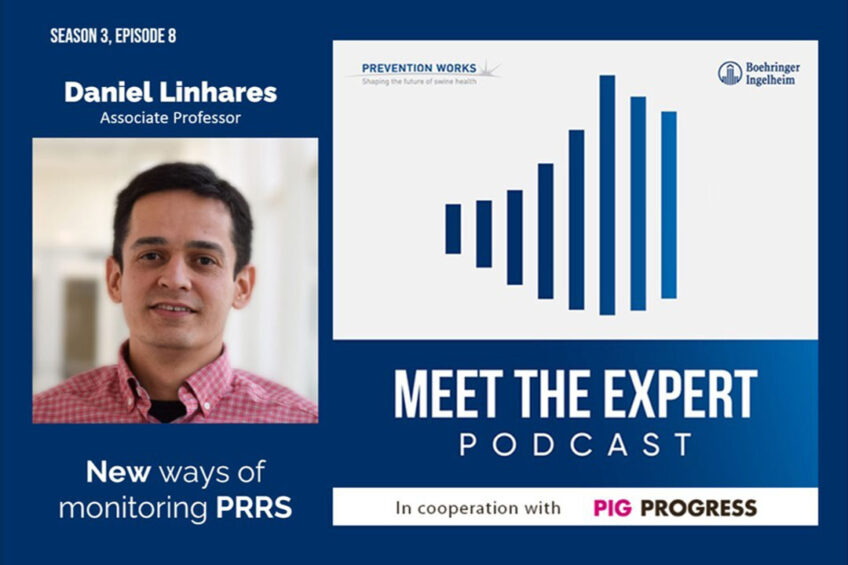Podcast: New ways of monitoring PRRS

In collaboration with Boehringer Ingelheim, in this episode of ‘Meet the Expert’, Pig Progress editor, Vincent ter Beek, speaks to the well-known global expert on Porcine Reproductive and Respiratory Syndrome virus, associate professor Daniel Linhares of Iowa State University.
The podcast begins with Linhares talking about what makes the PRRS virus so interesting to him. He explains that PRRS is the most economically important pathogen affecting the US and Latin American swine industries. “It is not so much about the virus itself but about the problem. I am fascinated with […] how to classify the activities of pathogens like the PRRS virus accurately.”
Monitoring PRRS in endemic herds
With PRRS, you cannot trust your eyes to determine the prevalence of PRRS, says Linhares. The level of prevalence “is a good proxy of whole herd productivity, not only due to PRRS but due to the other co-infections that typically go along with PRRS”. He emphasises that if you don’t measure, you simply do not know.
Reducing vaccinations?
The episode then takes a question from a veterinarian listening to the podcast. He asked a very interesting question: In times of low pork prices, producers need to cut costs and sometimes consider reducing vaccinations. Is it true that my return on investment is still higher with piglets plus sow vaccination than with sow vaccination only? It depends, says Linhares, and explains that it depends on various factors.
Methods to determine PRRS
There are at least 6 methods and applications on how to determine the PRRS level in farms that are endemic. Linhares spends some time reviewing each of these methods, discussing the pros and cons of each considering costs and effectiveness. These 6 methods are:
- The use of production data
- The use of processing fluids
- Tongue tip sampling
- Family oral fluids (FOF)
- The serum sample (the gold standard)
- Pooling samples
Ter Beek asks Linhares if he has a go-to method.
Frequency of monitoring
Another question is posed, also by a veterinarian, about how frequently monitoring should be carried out on a pig farm. Linhares also goes into some detail on how to monitor replacement gilts and what monitoring protocols he would put in place in the long term to ensure a farm continues on the right path.







